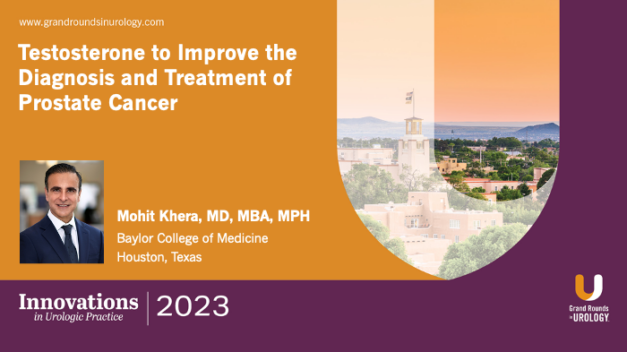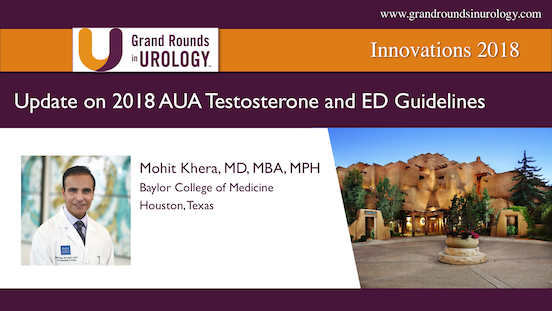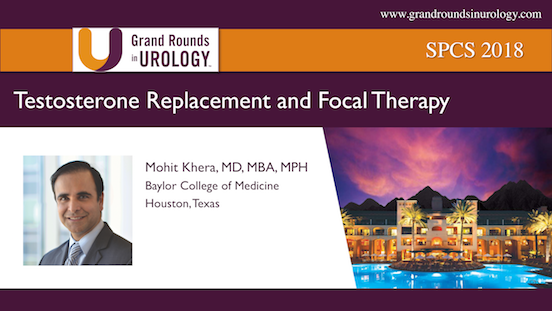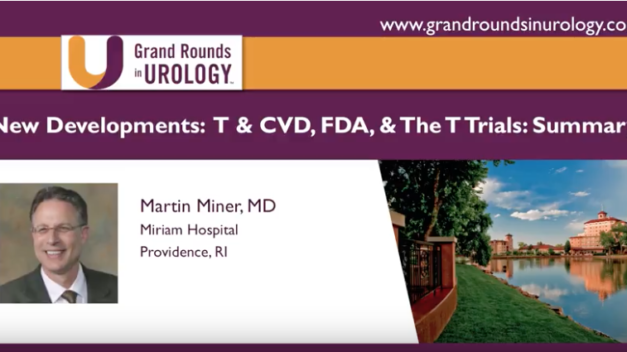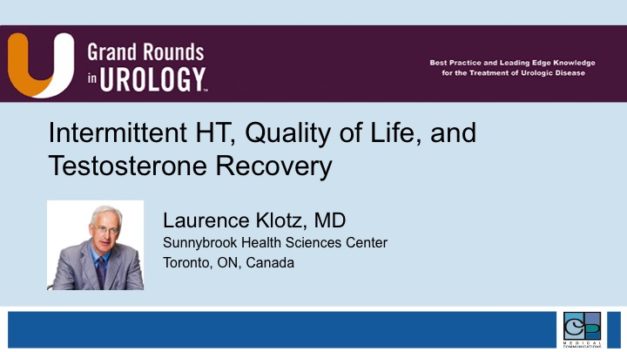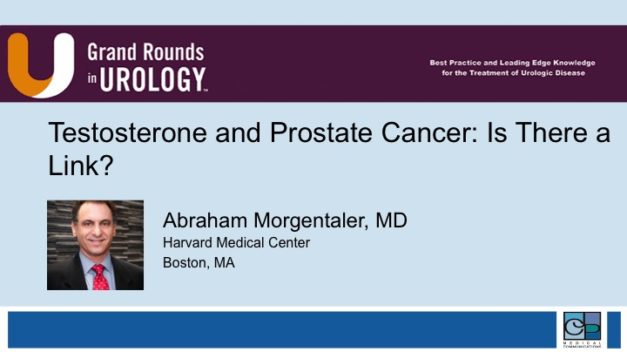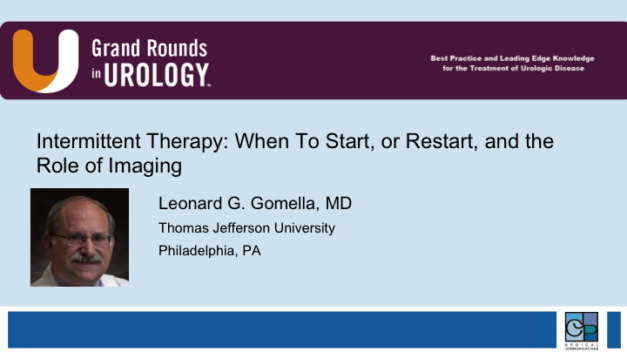Testosterone to Improve the Diagnosis and Treatment of Prostate Cancer
Mohit Khera, MD, MBA, MPH, explores how testosterone can help diagnose and treat prostate cancer. He explains that low testosterone is a biomarker for prostate cancer, a predictor of who will progress on active surveillance (AS), and a risk factor for biochemical recurrence after prostatectomy. Further, testosterone therapy can be a treatment for metastatic prostate cancer.
Dr. Khera argues that while testosterone should not be considered a monotherapy, it can augment treatment. He explains PSA has poor sensitivity and addresses biomarker tests that seek to improve sensitivity and specificity. Dr. Khera asserts the ratio of testosterone to PSA has sensitivity of 82 percent and specificity of 62 percent, with lower costs than biomarker tests. He cites data explaining for men with low testosterone, PSA alone may not be accurate. Dr. Khera cites another study on testosterone as a predictor of upstaging and upgrading in low-risk AS patients. It concludes testosterone should be a selection criterion for inclusion of low-risk prostate cancer patients in AS programs.
Dr. Khera explains lower preoperative testosterone levels increase the risk for prostate cancer recurrence. Dr. Khera turns to treatment options, looking at bipolar androgen therapy (BAT) that includes patients with advanced disease receiving high doses of testosterone which results in a 50 percent reduction in both PSA and metastatic disease. Dr. Khera cites a study on BAT for asymptomatic men with castration-resistant prostate cancer; the BAT was well-tolerated and resulted in high response rates.
Dr. Khera cites the TRANSFORMER study comparing BAT vs. enzalutamide. Data show no difference in survival; however, patients who switched from BAT to enzalutamide had the highest survival rates. Dr. Khera concludes that testosterone can improve prostate cancer diagnosis and counseling for patients on biochemical recurrence; it comes with significantly less cost and offers greater quality of life.
Read More
